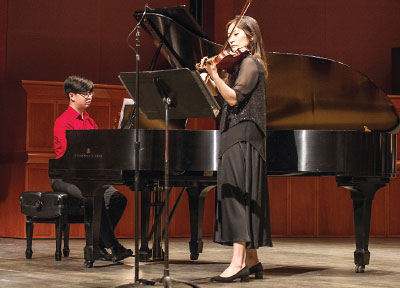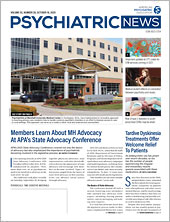The walls of the concert hall echoed with the timbre of 102 instruments. The conductor’s baton suddenly stopped. As his arm listlessly fell to his side, we lowered our instruments. “I know you know the notes. But what I heard was just that, not music.” Rather than listening to each other, we assumed our own sound would magically find its way into the larger picture. We were challenged instead, to step back and appreciate how the parts intertwined with such complexity, beauty, and purpose. Only then could we become a unified orchestra with the power to tell a beautiful story.
During my psychiatry clerkship, I had the privilege of hearing Mrs. A’s story. I quickly noticed it was fragmented—abrupt measures with inappropriate rests. Though flat in affect with minimal movements, her inner turmoil seeped through. When she stated her birthplace of Peru, my eyes lit up with vivid recollections of my medical trip to Huancayo. I shared my cherished memories, as well as the health disparities I had seen. Her glowing smile then faded, as she described how her happy childhood memories were overshadowed by years of unimaginable violence and abuse.
Having uncovered painful moments of Mrs. A’s past, I visited her later that day to try a mindfulness exercise. I asked her to close her eyes and focus on the sounds of the room. Within seconds, her eyelids began to flutter. Tears streamed down her face. “Make it stop!” I reached out and lightly tapped her shoulder. “Mrs. A, you’re safe. Can you hear me?” I waited for what felt like an eternity. She opened her eyes and stared blankly at the wall. For a few minutes, we shared an incredibly vulnerable moment. While she felt trapped within the confines of her trauma, I was unable to dampen her fearful memories.
Mrs. A was diagnosed with conversion disorder, but I quickly realized that it was not curable through a simple algorithm. The mindfulness exercise that had helped another patient instead evoked an emotional response of fear and helplessness. There were many layers of her past that had never been unpacked. The memories she tried to suppress were manifesting as seizure-like activity. Over the next week, I saw glimpses of hope, as she shared her strong faith, love for her children, and desire to recover. While I only witnessed slight improvements, I was optimistic that with proper guidance and therapy, she could progress forward and away from her debilitating past. Each and every nuance of Mrs. A’s story was essential to her road to recovery.
I want to pursue psychiatry because it is a field that values creativity and human connectivity. My passion for music has instilled in me the discipline to be precise when appropriate, but to improvise when given the opportunity. While psychiatry has outlined the criteria for numerous pathologies through DSM-5, no two patients present with the same combination of symptoms and stressors. I appreciate the personal approach to each patient, diagnosis, and treatment plan. My fond interest in global health and local community service has opened my eyes to the complexity of the unique human experience—the cultural, socioeconomic, familial, and educational aspects, to name a few. Psychiatry is not limited to the physical aspect alone, but the complex factors embedded within, and each component has a role in discovering each patient’s unique story.
While sheet music in its literal sense is a graphical combination of random notes and rhythms, music is the voice that puts them together in a remarkable way. As a future psychiatrist, I hope to play a part in piecing together the notes and rhythms of my patients’ stories in order to guide their healing. ■

